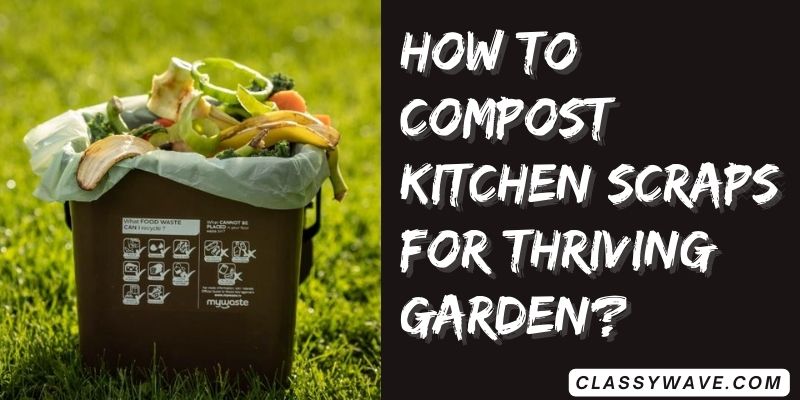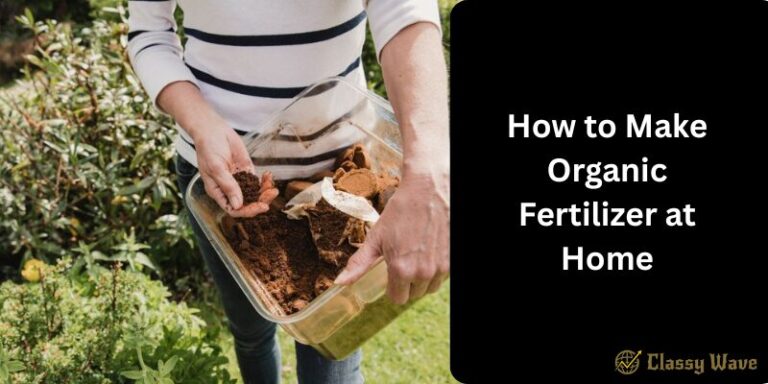How to compost kitchen scraps for thriving garden?
Embarking on the journey of composting kitchen scraps for a thriving garden opens a gateway to sustainable waste management and garden enrichment. From DIY compost bins to utilizing coffee grounds and exploring the benefits of compost tea, these headings delve into diverse approaches, providing a comprehensive guide for cultivating eco-friendly and flourishing gardens.
Choosing the Right Container for Kitchen Composting
Select a container that suits your space and needs, considering options like bins or tumblers. Adequate aeration and drainage are key for successful composting of kitchen scraps, creating a foundation for nutrient-rich soil in your garden.
Essential Components for a Thriving Garden Compost
Build a balanced compost pile with a mix of green (nitrogen-rich) and brown (carbon-rich) materials. Include kitchen scraps, yard waste, and paper, fostering a nutrient-dense environment for your garden’s vitality.
Balancing Act: Achieving the Perfect Compost Ratio
Maintain an ideal balance between green and brown materials in your compost pile. Aim for a 2:1 ratio of carbon to nitrogen, fostering optimal microbial activity and nutrient breakdown for a thriving garden.
Troubleshooting Common Kitchen Composting Issues
Address challenges like unpleasant odors, pests, or slow decomposition by adjusting the compost mix. Proper layering, turning, and monitoring can resolve common issues, ensuring a smooth and effective composting process for your kitchen scraps.
Harvesting and Using Compost in Your Garden
Time your compost harvest when it reaches a dark, crumbly texture. Apply this nutrient-rich compost to your garden soil, enhancing its structure and fertility, fostering healthy plant growth and a flourishing garden ecosystem.
Bokashi Composting for Kitchen Scraps
Explore the Bokashi method, utilizing anaerobic fermentation to break down kitchen scraps quickly. Bokashi composting is efficient, odor-free, and accommodates a wide range of materials, offering an innovative approach to recycling kitchen waste for garden enrichment.
Composting Tips for Apartment Dwellers
Overcome space constraints by adopting compact composting solutions suitable for apartments, such as vermicomposting or small-scale bins. Apartment-friendly composting methods enable residents to recycle kitchen scraps effectively, contributing to thriving gardens in limited spaces.
Worm Composting for Kitchen Scraps and Garden Health
Integrate worms into your composting process, allowing them to break down kitchen scraps into nutrient-rich vermicompost. Worm composting enhances soil fertility, promotes beneficial microorganisms, and boosts overall garden health through a sustainable and natural approach.
Seasonal Considerations for Composting Success
Adjust your composting practices based on the seasons, recognizing that temperature and weather impact decomposition rates. Adapt your composting routine to ensure year-round success, providing your garden with a continuous supply of nutrient-rich organic matter.
Composting Dos and Don’ts for a Thriving Garden
Follow best practices like regular turning, proper layering, and monitoring moisture levels for successful composting. Avoid composting meat, dairy, and oily items, adhering to guidelines that contribute to a thriving garden and sustainable waste reduction.
DIY Compost Bins for Kitchen Scraps
Explore creative and cost-effective ways to construct compost bins for kitchen scraps, utilizing materials like pallets, barrels, or repurposed containers. DIY compost bins provide a customizable solution, allowing you to adapt the design to your space and composting needs, enhancing the accessibility of sustainable waste management.
Coffee Grounds: Garden Enrichment Composting
Harness the nutrient-rich properties of coffee grounds to boost your compost’s fertility. Incorporating used coffee grounds into your kitchen scraps compost adds valuable nitrogen, enhances soil structure, and fosters optimal conditions for plant growth, creating a greener and more vibrant garden.
Compost Tea: A Plant Nutrient Boost
Unlock the benefits of compost tea, a liquid fertilizer derived from steeping compost in water. Rich in nutrients and beneficial microorganisms, compost tea provides an organic and potent solution to nourish plants, strengthen their resistance to diseases, and elevate the overall health of your garden.
Eggshells in Kitchen Composting
Discover the advantages of composting eggshells, which contribute valuable calcium to your compost. Crushed eggshells deter pests, balance acidity in the compost, and ultimately enhance the nutrient profile for your garden, promoting robust plant growth and improved soil structure.
Community Composting for Greener Neighborhoods
Participate in or establish community composting initiatives to collectively manage kitchen scraps. Shared composting reduces individual waste, fosters a sense of environmental responsibility, and creates a communal effort toward sustainable waste management, promoting greener and more eco-conscious neighborhoods.
Conclusion
In conclusion, the world of kitchen scraps composting holds a wealth of possibilities for environmentally conscious and gardening enthusiasts alike. From community engagement to DIY solutions and the use of unique additives like coffee grounds, each approach contributes to a greener, healthier planet. Embrace these strategies, adapt them to your lifestyle, and witness the transformation of kitchen waste into valuable compost, fostering both sustainable living and the vitality of your garden.
FAQs
Question: What’s the simplest DIY compost bin design for kitchen scraps?
Answer: A basic pallet bin is cost-effective, easily constructed, and perfect for small-scale kitchen composting.
Question: Can coffee grounds be composted directly, or is special preparation needed?
Answer: Yes, sprinkle coffee grounds directly into the compost pile—they add nitrogen and enhance soil structure.
Question: How can I make compost tea at home for my garden?
Answer: Steep compost in water, strain, and use the liquid to fertilize plants, providing nutrients and promoting growth.
Question: Are crushed eggshells beneficial for all types of compost?
Answer: Yes, crushed eggshells contribute calcium, deter pests, and balance acidity, enhancing nutrient diversity in compost.
Question: How can communities start a composting initiative for kitchen scraps?
*Answer: Collaborate, designate collection points, and educate residents to establish a community composting program, promoting sustainability and waste reduction.







